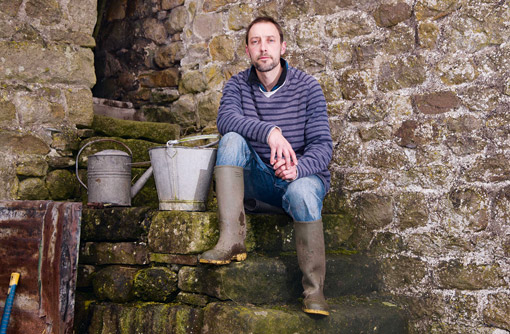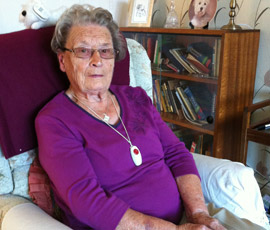Poverty hit farmers speak out

“Albert was the main breadwinner and after he died the money just stopped.”
When Olive Hinchliffe’s farmworker husband was killed in a tractor accident at the age of 47, she was left with no pension plans or life insurance and found every day a struggle without her husband’s salary.
“As I came to terms with his death I wondered how I was going to cope financially. There was nothing,” said Mrs Hinchliffe, who lives in Doncaster.
“I was juggling bills and I was on my own. I can remember coming in one day and finding a council tax bill. I had to draw on the little bit of savings I had to pay it.
“I was in dire straights. I knew what poverty was.”
Mrs Hinchliffe believes part of the problem with poverty in older people, particularly farmers, is that they are too proud to ask for help. Even her grown-up son didn’t know the extent of her money problems.
“Nobody knew. I think it’s because I always tended to keep my problems to myself. You only have to tell one person and then everyone knows.
“From the outside you look like you’re doing all right. You can give the impression you’re quite well off because you don’t like talking about it.”
 One of the worst aspects of poverty for Mrs Hinchliffe was “being forgotten” and the social exclusion that comes with being young enough to go out and do things but not having the money to do so.
One of the worst aspects of poverty for Mrs Hinchliffe was “being forgotten” and the social exclusion that comes with being young enough to go out and do things but not having the money to do so.
“If anyone invited me out I had to say no. I couldn’t go out on trips. I was sitting within four walls every evening and nobody would come and knock on your door.”
A couple of years ago Mrs Hinchliffe contacted Royal Agricultural Benevolent Institution (RABI) and now gets a quarterly allowance, which helps pay for small things that other people take for granted.
“It changed my life dramatically. It now means if I go out for the day I can afford a cup of tea.”
Mrs Hinchliffe’s story is typical of many retiring farmworkers, who are often forced to move out of tied housing and have no savings or pension provisions.
However, Farm Crisis Network chairman George Dunn said the recession has also seen many young people pushed below the poverty line.
One of the reasons for this is the trend towards short-term tenancies, he said. Just as Farm Business Tenancies (FBTs) can be a way to help young people get into farming, they can also be a big problem, said Mr Dunn, as the average FBT lasts just three-and-a-half years.
“Young people take on an FBT and can invest a lot, only to have the rug pulled from under them when they’re forced to move after the tenancy ends.”
Short-term tenancies are in high demand, which poses another problem, said Mr Dunn, as rents are only increasing. However, compounding this is some young people are not adequately prepared to take on the tenancy as they are not getting the right advice.
